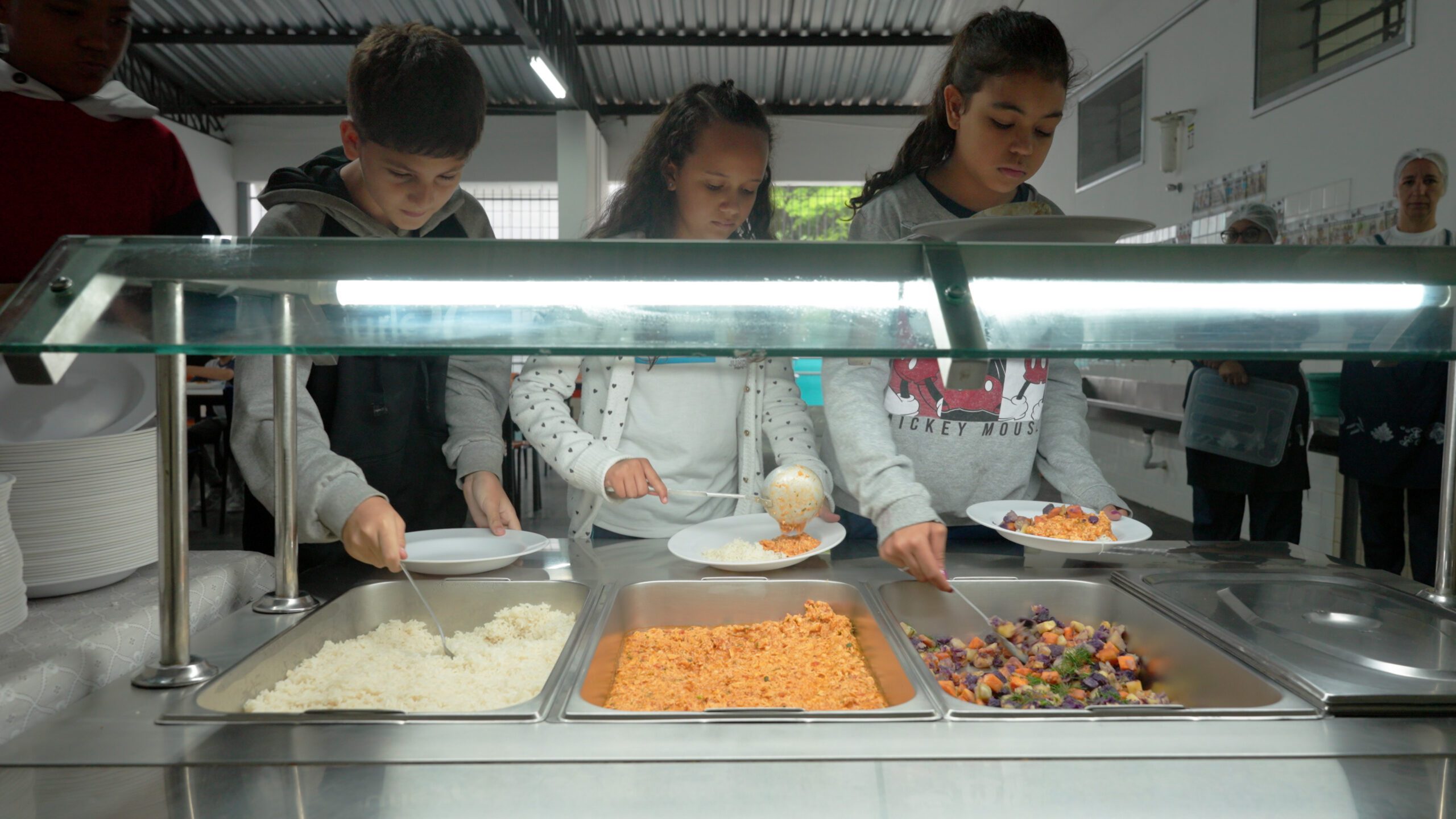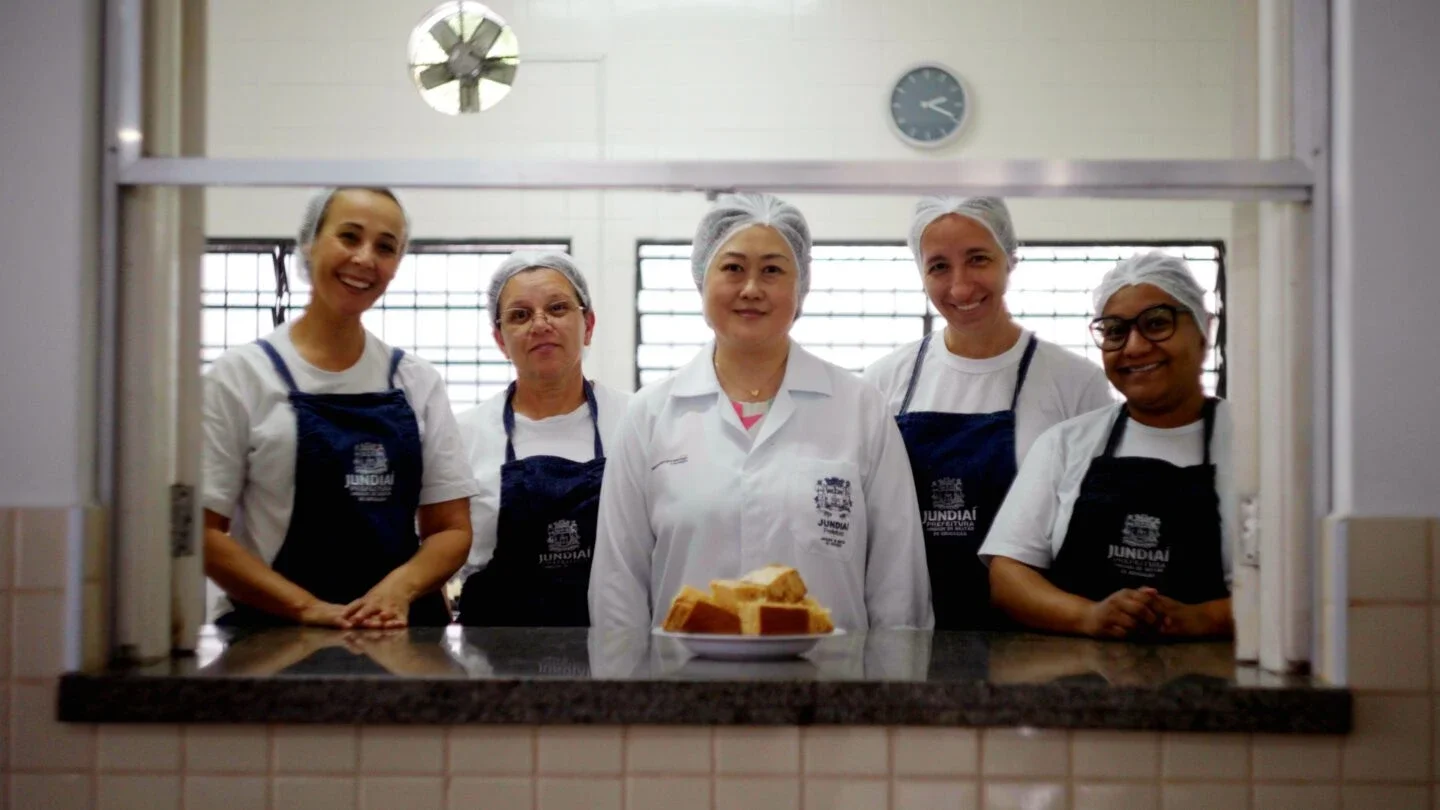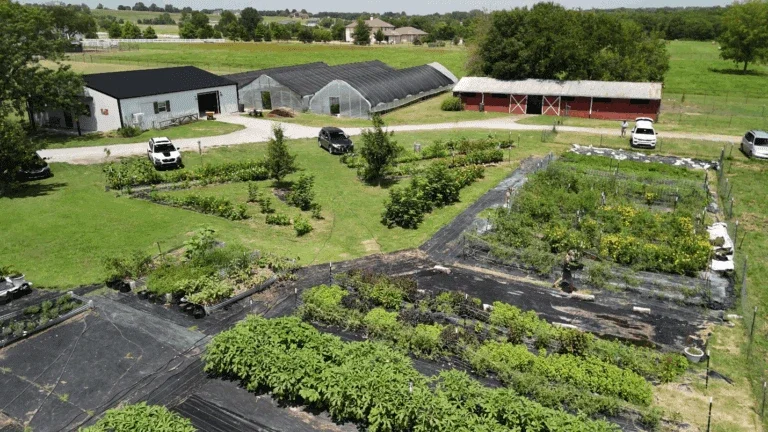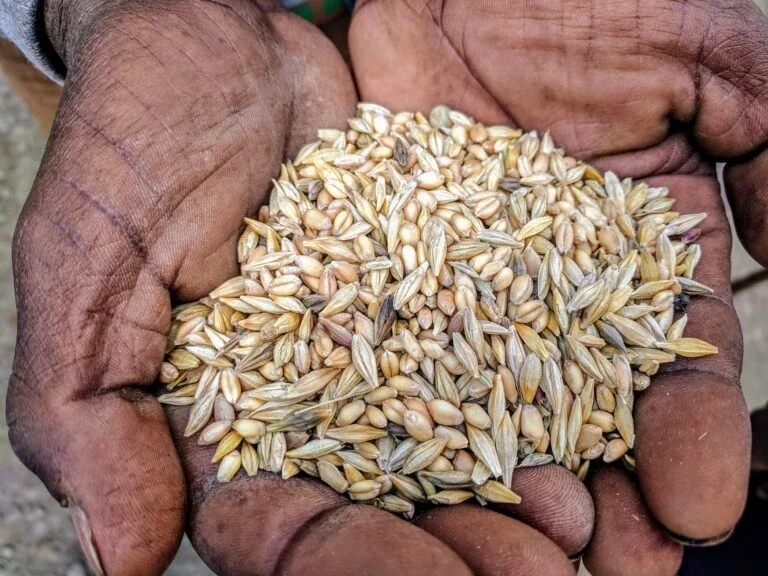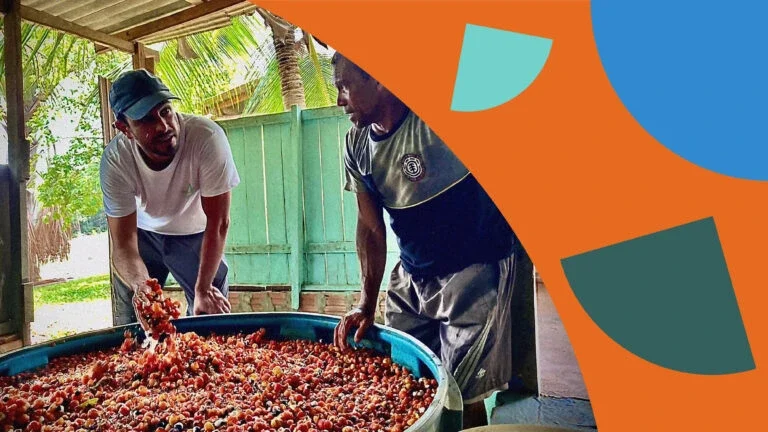Brazil’s School Meal Program inspired The Rockefeller Foundation’s new Big Bet to expand sustainable school feeding programs around the globe. Alongside allied partners, The Rockefeller Foundation aims to feed 100 million children nutritious meals that are increasingly grown locally and with regenerative and agroecological practices.
“Brazil has a public procurement program for school feeding where 30% of schools’ food can be procured from family farms at a premium price — this is a model that countries around the world can look to,” says Program Strategy Manager Charlotte Tweedley.
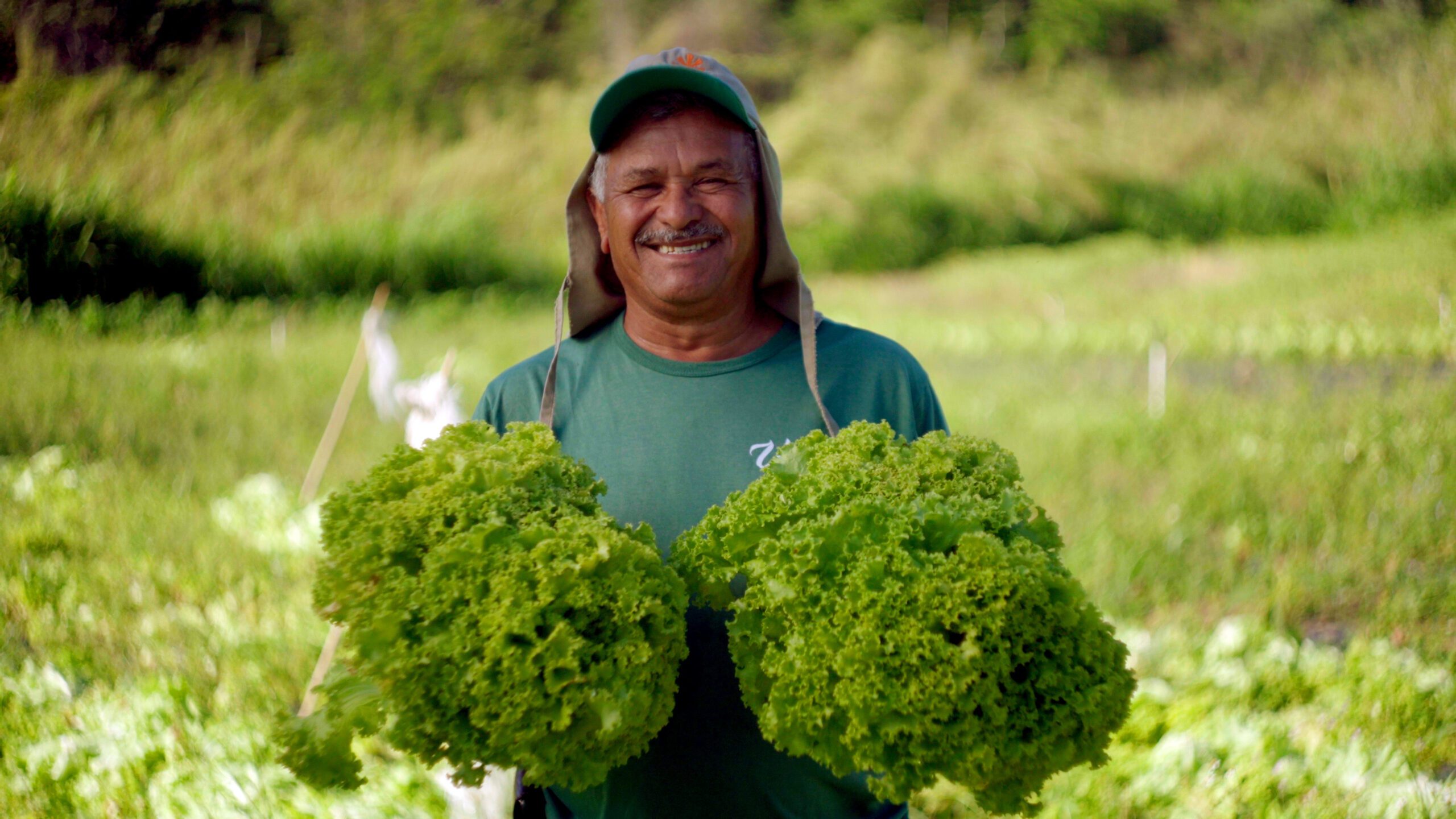
A farmer at Vale Verde, a regenerative farm in Jundiaí, Brazil, holds up freshly picked greens. Vale Verde provides nearby schools with nutrition packed produce, but they also run an education program that teaches students about farming with practices that keep the land healthy.
“To support Brazil’s larger agroecological goals and targets, we’re working with partners to unlock financing farmers that will support their transition to environmentally sustainable practices,” she says.
The regenerative school meal strategy takes inspiration from Brazil, which supports local farmers as part of its national school feeding program. The Rockefeller Foundation has done similar work in the U.S., helping public institutions like schools and hospitals procure “Good Food” that is sustainably sourced for under-served farmers. Early investment will be in pilot sites in Brazil and Kenya and then expanded with a goal of reaching 100 million children worldwide. This work is in partnership with many, including the School Meals Coalition a World Food Program Initiative, which includes 109 national governments.
“We want school feeding to be a source of self-reliance and economic stability for local producers and aggregators so that it is an economic opportunity for the community and country,” says Tweedley.
Equally important is teaching the next generation the importance of food and farming sustainability. The Rockefeller Foundation is also looking into supporting school kitchen gardens, and urban farms like Vale Verde, which bring nutrition and food education into the classroom — or rather, transform the farm into the classroom.
